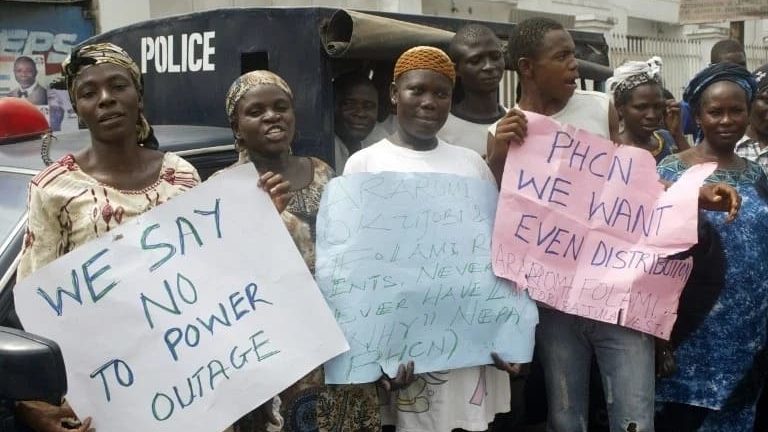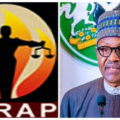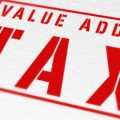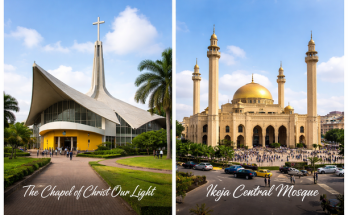In this report for IkejaBird KOLA ALHASSAN examines the country’s electricity woes following the collapse of the national grid. It is about one month and there seems to be no end in sight to the power problem. Expectedly, it is a litany of lamentations for citizens and business owners who are badly hit.
Nigeria’s electricity woes…
Despite arrogating the moniker, “Giant of Africa”, to herself, Nigeria grapples with electricity problems. From the National Electric Power Authority (NEPA), to Power Holding Company of Nigeria (PHCN), to Transmission Company of Nigeria (TCN), it has been the same old story — darkness.
Fellow West African country, Ghana, in 2013, celebrated ten years of uninterrupted power supply. Other tiny countries, like Senegal, Ivory Coast, Cameroon, among others in the sub region with less human and capital resources, enjoy stable power. But, the reverse is the case with Nigeria. Poor electricity is a worrying perennial problem in the country, despite spending billions of naira over the years.
The nation has been groping in darkness for about a month now. Reason? The national grid collapsed on March 15, 2022.
It was a meld of outrage, complaints and lamentations from citizens who spoke to IkejaBird.
They unanimously want federal government to step up its game.They stressed that erratic power would cripple the economy.
Ade Ogunye, a resident of Iyana Ipaja, who spoke to IkejaBird, said: “The electricity problem in this country seems to be beyond government. Over the years, successive administrations have not been able to address the issue after spending huge amounts of money.”
Another respondent, Tunde Adetula, who lives at Ayobo, said: “They said the national grid collapsed. It is a shame on our nation. How can it collapse? We pay for electricity, yet we are made to suffer. Such is our case too when it comes to petrol and gas. I think our leaders have really failed us.”
A business owner in Abule Egba axis, Mrs Patience Ezeh, who owns a nylon factory, lamented that the power outage crippled production.
“You know we need power for polythene production. I have had to spend out of my budget because we ran on fuel consistently.”
Another entrepreneur, Bayo Oduwole, who runs a cold room in Egbeda area of Lagos said: “I ran at huge loss. No light to power my freezer, my generator was faulty. I had to sell frozen chicken, fish and the rest at giveaway prices. They were losing colour, they were not fresh anymore. I don’t know what government is doing. The situation is disheartening.”
However, the Minister of Power, Abubakar Aliyu, attributed the current power crisis in the country to gas shortage.
“Also some of the generators have to go into maintenance,” he said.
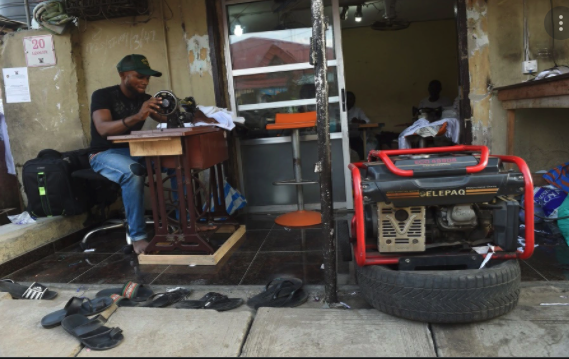
The Electricity Generation Companies (GenCos) also blamed the problem on weak transmission capacity and over N1.6 trillion debts allegedly owed them by the Federal Government.
In the same vein, the Socio-Economic Rights and Accountability Project (SERAP) urged President Muhammadu Buhari to probe the mismanagement of over N11 trillion earmarked for regular electricity by successive administrations since 1999.
The Power Minister also said plans were underway to add 2,500mw to the national grid early this week.
With epileptic power supply still hanging over the country like the Sword of Damocles, citizens and business owners alike, have to find an alternative source pending when federal government stems the tide.

